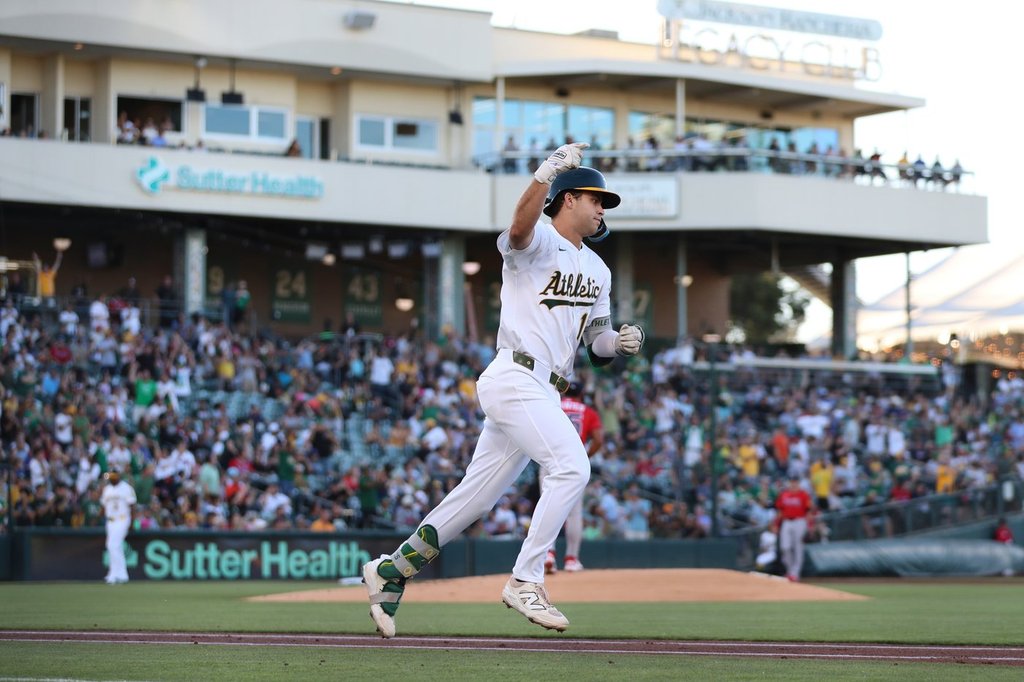The Human Cost of Baseball's Corporate Migration: From Oakland's Community Loss to Vegas' Billion-Dollar Gamble
The Oakland Athletics' controversial journey from a beloved community fixture to a temporary Sacramento resident, en route to Las Vegas, illustrates the growing tension between baseball's community roots and corporate interests. This transition raises important questions about sports franchise responsibility, urban equity, and the changing landscape of American baseball.

Empty seats at Oakland Coliseum symbolize the community impact of the A's departure
The Dissolution of Oakland's Baseball Heritage
In a stark illustration of how corporate decisions can impact local communities, the Oakland Athletics' exodus from their longtime home has left a void in a city already grappling with multiple sports franchise departures. The move represents more than just a change of venue—it's a reflection of growing tensions between community interests and corporate profit motives in American sports.
Community Response and Resistance
The passionate "sell the team" protests that once echoed through the Oakland Coliseum have evolved into a quieter but persistent form of dissent. Local fans, wearing "Forever Oakland" and "Rooted in Oakland" shirts, continue to voice their opposition to owner John Fisher's decisions, highlighting the disconnect between team ownership and community values.
"It's a big difference walking through the ballpark in about five minutes instead of walking the Coliseum in like 20, 30 minutes," notes Francisco Almazan from Modesto, capturing the bittersweet downsizing from a major league venue to a minor league facility.
Sacramento: A City's Temporary Embrace
The Athletics' current residence in Sacramento's Sutter Health Park, a Triple-A facility, exemplifies the uncomfortable reality of corporate transition. Players and staff navigate makeshift accommodations, while fans grapple with supporting a team that views their city as merely a waystation to Las Vegas.
The Impact on Players and Staff
- A hastily constructed two-story clubhouse beyond left field
- Reduced capacity affecting game atmosphere and revenue
- Challenges for staff and players adapting to minor league facilities
Las Vegas: The Corporate Promise
The planned $1.75 billion Las Vegas ballpark represents both the allure and risks of corporate sports development. While construction has begun, questions remain about community integration and authentic fan support in a tourist-driven market.
Community Building Efforts and Challenges
The A's have initiated community outreach programs, contributing $1.5 million to local organizations since 2023. However, these efforts face scrutiny from critics who view them as corporate attempts to manufacture community connections rather than organic relationship building.
The Broader Implications
This three-city saga reflects larger questions about sports franchise accountability, community rights, and the role of baseball in American cities. The emergence of grassroots alternatives like Oakland's B's demonstrates how communities can respond to corporate departure with innovative, locally-focused solutions.
As the A's transition continues, the story serves as a cautionary tale about the intersection of corporate interests and community heritage in American sports, raising important questions about sustainable development and social responsibility in professional athletics.
Rachel Whitman
Rachel L. Whitman is a political columnist and investigative journalist based in Washington, D.C. Her writing focuses on democratic resilience, civil rights, and the intersection of technology and public policy. With a background in law and public affairs, she brings sharp analysis and a deep commitment to progressive values.
